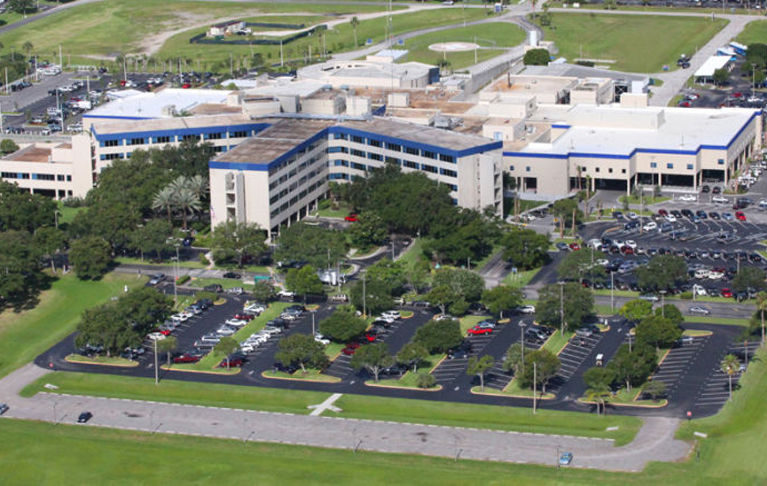
Softened up by some sobering talk from nationally known consultant Jamie Orlikoff last month, leaders of Indian River Medical Center seemed more united than they have in the past as they gathered to hear from a second set of consultants last week about whether the struggling non-profit hospital should remain independent or affiliate with another healthcare system.
Scott Goodspeed, a director of Maine-based Stroudwater Associates, was struck by the cooperation of the three boards seated around him at Indian River State College’s Richardson Center – the hospital’s board of directors, the board of the hospital’s foundation, and the Hospital District board, which oversees the hospital as a taxpayer-owned asset.
Goodspeed said he was happy to see the boards “had come together in a positive way,” and noted that for another of his client hospitals run by a county authority, getting all sides to talk together had taken two weeks.
For the IRMC leaders, some unhappiness might have been understandable. The Hospital District Board was told bluntly by Orlikoff that it may need to give up its authority over the hospital because the hospital’s mandate to operate under Sunshine laws could scare away potential partners.
The IRMC Foundation’s board wasn’t pleased either; donations have dried up while the hospital debates its future. A $100 million campaign to build a tower of patient rooms was to have begun this year, but is now on indefinite hold.
And IRMC executives can’t be happy about having outside experts nose around in their financial records. Historically secretive, they’re already under scrutiny after a $4 million first-quarter loss, though they say recent gains have recovered some of that.
There have been points in IRMC’s recent past when cooperation between the various hospital-related boards would have been unthinkable. And it seemed the Stroudwater group had been briefed to avoid some sore spots. When Goodspeed began talking about another client trending toward bankruptcy, he quickly added to his Vero audience, “Not you.”
Critics of IRMC have tossed around that term, to the great consternation of hospital executives who deny the hospital is anywhere near broke.
But then Goodspeed handed one to hospital critics, when he went on to say that same client hospital thought it was losing $2 million but was found to be actually losing six times that much.
“You have to ask yourself about the quality of the financial statements, the quality of the executive team and the quality of the governance,” he said.
“We trust what you say, but we verify the data.”
One of the most persistent changes at IRMC is a drop in inpatient revenues, a change that is occurring nationwide.
Stroudwater consultant Clare Kelley added that the hospital’s secondary market, which extends to Fort Pierce to the south and, to the north, Palm Bay, is barely tapped. Using Medicare patients as a marker, only one percent come from outside IRMC’s primary market, she said.
“IRMC has made major transformations over the last two decades,” Sommers said. “You really have missioned yourself as a regional medical center with tertiary centers of excellence” – the heart and cancers centers.
He also noted the increase in IRMC-owned medical practices. “You’ve been growing it out of necessity, because of how new physicians coming out of training want to be employed and how they want to practice medicine.”
From now until July, Stroudwater will work on the first phase of its strategic assessment, looking at risks the hospital will face if it remains independent, versus the risks if it affiliates with a larger system.
Work sessions are scheduled for May, June and July, with draft findings presented in July. Stroudwater expects to present its strategic options assessment at the August meeting.
On this visit, consultants had individual sit-downs with members of the District Board as well as representatives from the hospital. They also spoke with experts outside the system.
At the request of District Chairwoman Marybeth Cunningham, a consultant met with Paul Nezi, who in 2010 was appointed by the District Board to the hospital’s board of directors. Nezi, a former health insurance executive, became a vocal critic of hospital management; he resigned in 2014.
A consultant also spoke with Dr. Val Zudans, an ophthalmologist who lost his seat on the District Board in the November election. Zudans continues to be a very public face in the debate over the hospital’s future.



